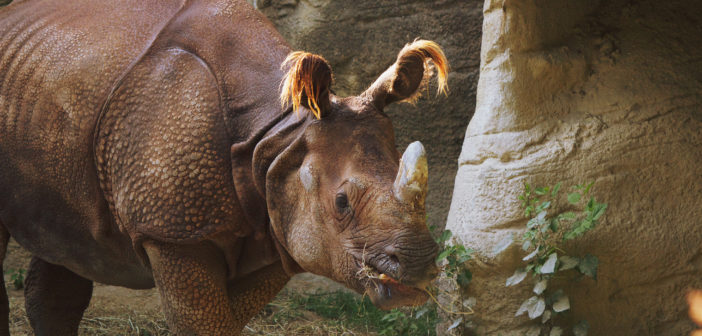Here in Malaysia, local media often display images of seizures of pangolin, ivory, rhino horn, tiger parts and turtles with headlines hailing the success of wildlife seizures by the Malaysian authorities. While these pictures depict the success of law enforcement in enforcing wildlife trafficking laws, they can be alarming to view, due to the sheer quantity of wildlife products seized not only in Malaysia, but also en route to or re-exported from Malaysia.
Wildlife trafficking is thought to be the third most profitable sector of the black market in the world, after drugs and weapons. Discussions on combating wildlife trafficking have focused mainly on large, well-known mammal species such as elephants, rhinos and tigers in Africa and Asia. Often forgotten, however, is the fact that wildlife trafficking occurs across all continents and threatens a wide range of imperiled species, including exotic birds, sea turtles, corals, caimans, iguanas, pangolins, and many more.
Illegal wildlife products are moved through countries and across borders and sold both openly and covertly. Much of the trade goes on undetected, so it is difficult to estimate the enormous quantity of illicit wildlife shipped and sold internationally. In some cases, trafficked wildlife products are hidden, and they pass through checks unknown to customs and border officials. In other cases they are accompanied by false documentation. Customs officials may also turn a blind eye or help conceal illegal wildlife in exchange for bribes or other benefits.
In addition to being the backbone of a modern economy, transportation and logistics can be key enablers for trafficking wildlife and wildlife products. Malaysia has some of the most developed infrastructure in the region, which makes it easy for smugglers to transport animals. Reports of seizures at sea and airports are common, especially in the area of Johore and at Kuala Lumpur and Penang International Airports. Malaysia has a big smuggling problem and is among the top ten smuggling hubs in the region, along with the Philippines, Indonesia, Singapore and Vietnam. There is also a worrying new trend of trading through the internet, where buyers are both local Malaysians and foreigners.
Globalization has increased opportunities for illegal trade, especially where law enforcement and agencies charged with protecting wildlife are under-resourced and poorly supervised. In many countries, agencies responsible for combating wildlife crime, including addressing corruption in this area, lack the capacity and resources to properly do their jobs. This may be due to wildlife crimes being considered low priority, a general lack of resources or infrastructure, or a vested interest among decision makers in maintaining corrupt institutions. There is also often the perception that wildlife crimes are essentially victimless, and as a result governments tend not to give high priority to the issue of wildlife crime, including wildlife related corruption.
The Convention on International Trade in Endangered Species of Wild Fauna and Flora (CITES) is tasked with regulating international wildlife trade, but it is ineffective, as it has no enforcement powers. This means the slaughter of endangered species and their sale for profits continues largely unabated.
The question now is whether the legislation in Malaysia is adequate to protect endangered species and to combat illegal wildlife trading. What approach is taken by the judiciary in combating illegal wildlife trade? A major issue is with inadequate sentencing, which usually entails a small fine to the offender, or a day spent in jail, because the judge or magistrate does not understand the seriousness of wildlife crimes.
The authorities need to fight tooth and nail to address wildlife crime in the region through information sharing. What is necessary is a joint effort across government agencies and relevant other agencies and institutions. Strengthening wildlife law enforcement and fighting wildlife crime has to be given national, regional and global priority. Support of organisations like the United Nations Office on Drugs and Crime (UNODC), Interpol, World Customs Organisation and CITES are crucial to the success of such efforts.
Featured image: A Sumatran rhino, who are now extinct in the wild in Malaysia due to habitat loss and poaching. Image credit: Kat Jenkinson, CC BY-SA 3.0.





